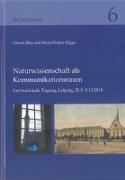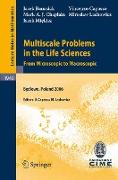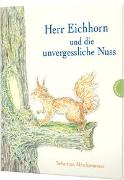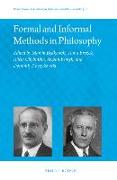- Start
- Naturwissenschaft als Kommunikationsraum
Naturwissenschaft als Kommunikationsraum
Angebote / Angebote:
Transfer of knowledge and exchange of ideas are current questions of research. In spite of this general interest in cross-cultural scientific relations, Europe's contacts to Russia have been only superficially studied so far. Besides the language problem, the prevalent misestimation of Russia's role as a mere recipient seems to pose a major obstacle. Clearing this barrier is a main concern of the long-term project Scientific Relations Between Germany and Russia in the Fields of Chemistry, Pharmacy and Medicine in the 19 th Century at the Saxon Academy of Sciences and Humanities. This project, which started in May 2007 und is scheduled to run until 2018, continues the great biobibliographical tradition of the Saxon Academy as well as profound studies performed at the Karl Sudhoff Institute for the History of Medicine and Science (Leipzig University, Medical Faculty) that have been financially supported by the German Research Foundation from 1999 to 2006.
The academy project and the Karl Sudhoff Institute cooperated in organizing the international conference Science as a Medium of Communication between Germany and Russia in the 19 th Century which took place from September 29 to October 1, 2010 in Leipzig. The conference aimed at bringing together scholars with specialized knowledge of this field and provided a platform for exchanging experience in methods and issues of transnational science studies. A fundamental target was the documentation of major figures and the description of their institutional settings. Since the project is dedicated to history and philosophy of science in general, contributions on changes of scientific paradigms and on the history of concepts and ideas were also encouraged.
The convention gathered about 30 scholars from all over the world as well as some 20 local specialists to discuss various historical aspects of the bilateral scientific relations between the German speaking countries and the Russian Czardom. Thus, the interdisciplinary program covered numerous facets of history of science - social, cultural, educational, institutional and intellectual history and history of medicine, biology, chemistry, pharmacy, psychology and geography.
This volume presents the conference papers arranged according to subjects. The first section, which precedes the special essays, contains preliminary remarks and an introductory speech: Heiner KADEN, vice-president of the Saxon Academy of Sciences and Humanities, discusses the long research tradition in the history of science at Leipzig and the roots of the project on German-Russian scientific relations in the 19 th century. During the conference two keynote speakers outlined the main features of scientific encounters and provided a European contextualisation: Dietrich VON ENGELHARDT (Luebeck) described the international exchange of ideas at the beginning of the 19 th century with special reference to Italy, while Matthias MIDDELL (Leipzig) gave an inspiring analysis of the discontinuities in the French-Russian scientific, cultural and economic relations.
The second part is dedicated to chemistry and pharmacy. Selected protagonists of scientific transfer are Friedrich Konrad BEILSTEIN (Elena ROUSSANOVA, Hamburg), Gustav VON BUNGE (Regine and Gerd PFREPPER, Leipzig), Ivan S. PLOTNIKOV (Elena A. ZAITSEVA, Moscow) and Vladimir I. VERNADSKY (Marina Ju. SOROKINA, Moscow). This is complemented by Gisela BOECK's (Rostock) observations concerning the use of the periodic table in school instruction and Christoph FRIEDRICH's (Marburg) general overview of German apothecaries in Russia in the 19 th century.
The third section covers medicine and psychology: Galina KICHIGINA (Toronto) highlights the importance of Karl Johann VON SEIDLITZ regarding the implementation of physical examination in clinical practice, Vladimir A. ABASHNIK (Kharkov) reveales the connections between Emil Heinrich DU BOIS-REYMOND and the Kharkov medical faculty, and Florian MILDENBERGER (Frankfurt/Oder) describes the obstacles Emil KRAEPELIN has encountered during his years at Dorpat. Saulo DE FREITAS ARAUJO (Brazil) discusses Wilhelm WUNDT's influence on Vladimir M. BECHTEREV's concept of scientific psychology, Natal'ja Ju. MASOLIKOVA (Moscow) addresses the personal relations between members of the Russian psychological society and Leipzig University, and Susanne GUSKI- LEINWAND (Heidelberg) delineates Aleksander NECHAYEV's experimental psychology.
The fourth chapter deals with hygiene as a new leading science in the 19 th century, a topic which proved to be one of the central points of interest during the conference: Vladimir S. SOBOLEV (St. Petersburg) describes the fight of the Russian naval forces against infectious diseases, while Florian STEGER, Nadine MEYER and Wolfgang LOCHER (Munich) evaluate Max von PETTENKOFER's impact on the development of Public Health in Russia. Lutz HAEFNER (Goettingen) illustrates the transfer of hygienic knowledge using the example of the Saratov medical society, Konstantin K. VASYLYEV (Sumy) deals with the role of German physicians in the development of the Odessa health resort, and Bjoern FELDER (Goettingen) traces Evgenii SHEPILEVSKY's role in the Russian eugenics movement.
The fifth group of presentations pursues conceptional changes in biology: The zoological section includes Sergei I. FOKIN's (St. Petersburg) description of Otto BUETSCHLI's key role in the development of Russian zoology, but the general focus is on evolution: Thomas SCHMUCK (Berlin) analyses Christian Heinrich PANDER's reflections on metamorphosis, while Eduard I. KOLCHINSKY (St. Petersburg) traces the German influence on Russian evolutionism, and Erki TAMMIKSAAR (Tartu) gives an introduction to Karl Ernst VON BAER's ecological and evolutionary thinking. Nadezhda V. SLEPKOVA (St. Petersburg) addresses the conflicts between the "Russian" and the "German" parties at the Imperial Academy of Science in St. Petersburg using the example of the zoological museum, and last but not least Anastasia A. FEDOTOVA (St. Petersburg) depicts the rise of plant geography in Russia.
The last section collects biographical approaches: The professionalisation of veterinary medicine is reflected in the St. Petersburg society of veterinarians (Natalia E. BEREGOY, St. Petersburg), and Anna ANANIEVA describes the close relations between VON BAER and the Leipzig publisher Leopold VOSS. A panel on prosopography concluded the conference, presenting work in progress for discussion: Daniela ANGETTER (Vienna) discusses a research project on the history of medicine and pharmacy at Lviv University, Vladimir A. VOLKOV and Marina V. KULIKOVA (Moscow) present their biographical encyclopedia of the professors in the Russian Czardom, and Marta FISCHER (Leipzig) specifies the conception of a biobibliographical encyclopedia of the German-Russian scientific relations.
Without a doubt, the conference opened chances for international cooperation and provided opportunities for interdisciplinary communication. As reflected in the extensive index of persons, an admirably huge amount of facts is compiled. Yet, in light of the richness of detail, analyses and interpretations are underrepresented, discussions and personal talks showed that yet time is not ripe for general conclusions. It will be up to the project's research program to work out a general guideline, to consider the results and to comment on the implications.
Libri-Titel folgt in ca. 2 Arbeitstagen



